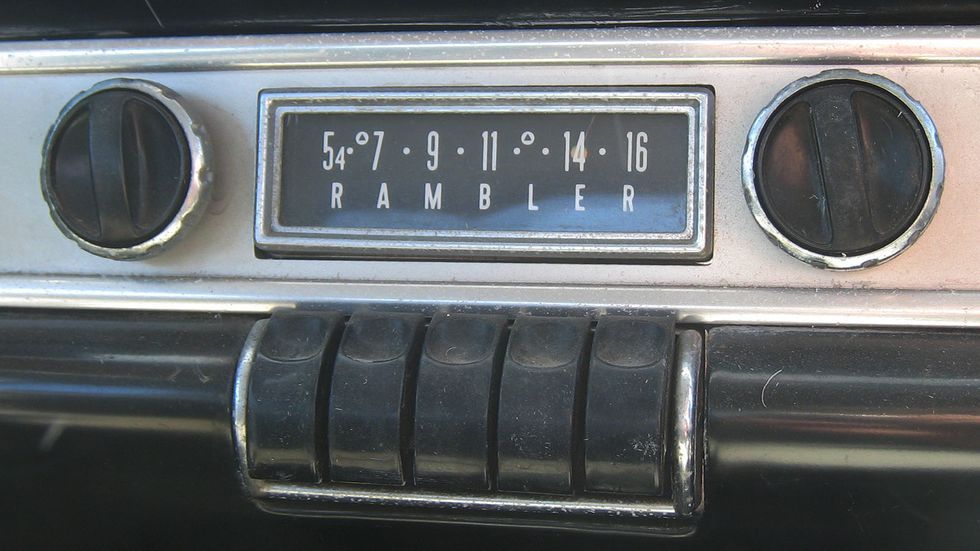A Watergate Lifetime
June 23, 2022
On June 17, 1972, the police caught five men burglarizing the headquarters of the Democratic National Committee located in the Watergate office complex in Washington, D.C.

Photo Credit: New York Times
It was the summer between my fourth and fifth-grade years. I don't remember what I was doing that day. It was a Saturday, so I likely hung out with friends, rode bikes, tossed around a baseball, or tromped through the woods behind our houses. Someone's mother may have given us a ride to the community pool. If I had heard about the break-in, it wouldn’t have had any significance.
Not because I was politically ignorant. I knew Richard Nixon was president and seeking re-election. For whatever reason, the president caught my attention and interested me in politics. But for most Americans and me, it was a local D.C. crime story that just happened to involve the offices of a major political party and wasn't on the national radar.
I wasn’t educated at an adult level on all of this, but I knew more than you would expect a nine-year-old, soon to be ten, to know. I was Alex P. Keaton before there was an Alex P. Keaton. A teenage character in a 1980's television sitcom played by Michael J. Fox with a mature adult's sense of conservative politics and business.
A few months later, I asked my fifth-grade teacher if I could give a brief campaign speech for Nixon. Yep. Nerd. She gave me five minutes near the end of the day. Fueled by message points from the Weekly Reader, I spoke on the president's behalf. The Watergate story was growing but was still in its early stages and wasn’t a campaign issue, so I didn't mention it. I held forth on Nixon's stance on busing. Even though we all walked to school, buses were in our future when junior high rolled around. I don't remember much else. I do know no one gave a speech on Nixon’s opponent’s behalf, so I considered it a win.
After Nixon won re-election, the break-in and its aftermath became a full-blown scandal. I read newspapers, watched the evening news – on CBS with Walter Cronkite, of course – and watched some of the hearings in the summer of 1973. I had a friend who could recite the individual stats for every player on the Pittsburgh Pirates’ roster. I could hold forth on executive privilege and identify all the president’s men and their alleged role in the cover-up.
As 1973 turned to 1974, our sixth-grade teacher asked us to write a prediction for the new year on a piece of construction paper to be pinned on one of the classroom bulletin boards. While my classmates predicted Super Bowl and World Series winners, weather events, or where they would vacation during the summer, I predicted President Nixon would be impeached. My sixth-grade teacher wasn’t as tolerant as my fifth-grade teacher was of my penchant for politics and thought the comment frivolous and disrespectful coming from a ten-year-old. She pinned it to the board anyway. Seven months later, the House Judiciary Committee recommended three articles of impeachment against the president, and shortly after, he resigned.
My interest in Watergate, the Nixon administration, politics, and history grew. Although my career path led elsewhere, my love for history continued. I eventually succumbed to my passion, and, at age 54, I set out to get a master’s degree in history and retired from my corporate career three years later to teach, research, and write.
This was why I was visiting the Richard Nixon Library and Museum on June 17, 2022, the fiftieth anniversary of the Watergate break-in. I was there doing research for my study of John Ehrlichman, Assistant to the President for Domestic Affairs until 1973. The timing was coincidental. I didn't plan it around the anniversary but around the family calendar.
The anniversary received coverage and mention across various news and media platforms that day and in the days leading up to it, but a more recent presidential scandal scored the headlines. The hearings surrounding the January 6 break-in of the capital building returned the stolen election allegations back to the front pages.
I thought about this while sitting on a bench in the museum gardens, taking a quiet break from my work. During the 1973 Senate hearings and the months afterward, everyone was confident they knew and understood why and how the break-in occurred, who conceived it, who concealed it, and ultimately how justice was served. But history has a funny way of changing.
Peter Geyl, a Dutch historian, said, "History is indeed an argument without end." What he meant is that historical narratives evolve as evidence is revealed. Documents sealed are unsealed, people who refused to talk finally do, interviews hidden are found, and theories and arguments change. The door didn't close on Watergate with the final trial. Evidence has continued to surface over the past fifty years. Books and articles are still being written, and documentaries and news segments produced that offer different perspectives on why and how the break-in occurred, who conceived it, who concealed it, and how, ultimately, justice may or may not have been served.
Like Watergate, people are sure they know what happened on January 6 and the weeks leading up to it. But just like Watergate, we'll learn more as further evidence is revealed in the years to come.
My sixth-grade teacher was friends with my grandmother. Decades after I walked out her classroom door for the last time, she told grandma about my prediction, her initial reaction, and then her eating a little dish of crow months later. She asked what I was doing and was surprised to learn I was plowing corporate bureaucratic fields for a living. She told grandma she always thought I'd become a historian.
Her prediction took nearly fifty years to come true. It seems personal histories are evolving narratives too.
While I was seated on the bench in the museum garden, a family wandered by. Two of the children had the hollow look of hostages waiting to be released by their captors, but one, a young man about ten or eleven, was engaged in conversation with his parents comparing Watergate to the current scandal. I couldn’t help but smile and think about another ten-year-old boy’s fascination with politics and history. And Alex P. Keaton.
Like what you read?
Subscribe to my mailing list and get notifications to your inbox when my next blog post goes live.
Contact Us
More By Joe


